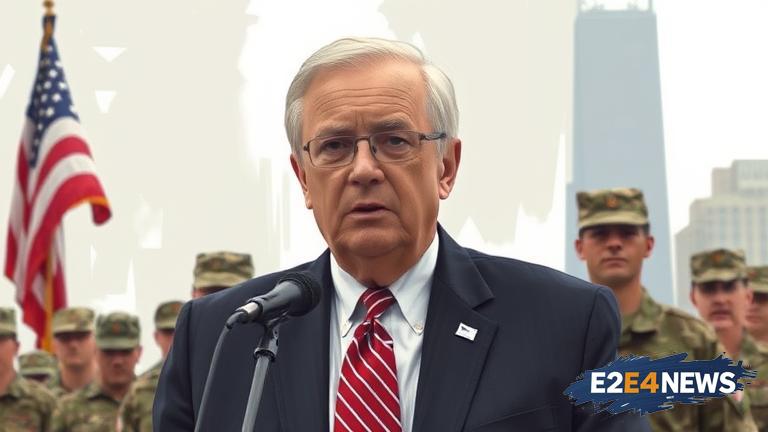Nebraska Governor Jim Pillen has recently spoken out about the President’s plan to deploy the National Guard to Chicago, a move aimed at addressing the city’s rising crime rates. The Governor’s comments come as the state of Nebraska continues to work closely with Immigration and Customs Enforcement (ICE) to tackle issues related to immigration and border security. According to Governor Pillen, the decision to send National Guard troops to Chicago is a complex one, requiring careful consideration of the potential consequences. The Governor emphasized the need for a comprehensive approach to addressing crime and public safety, one that involves not only law enforcement but also community engagement and social services. Nebraska’s collaboration with ICE is part of a broader effort to enhance border security and enforce immigration laws. The state has been working with federal authorities to identify and apprehend individuals who are in the country illegally, with a focus on those who pose a threat to public safety. Governor Pillen has stated that Nebraska’s partnership with ICE is crucial in maintaining the integrity of the state’s borders and ensuring the safety of its citizens. The Governor’s comments on the National Guard deployment to Chicago have sparked a mix of reactions, with some praising his cautious approach and others criticizing his lack of outright support for the President’s plan. As the situation in Chicago continues to unfold, Governor Pillen’s administration will likely face increasing pressure to take a more definitive stance on the issue. Meanwhile, the state’s work with ICE is expected to continue, with a focus on targeting high-priority cases and supporting federal efforts to secure the border. The Governor has emphasized the importance of balancing public safety concerns with the need to protect the rights and dignity of all individuals, regardless of their immigration status. Nebraska’s experience in working with ICE has yielded valuable insights into the complexities of immigration enforcement, and the state is well-positioned to contribute to the development of more effective and humane policies. As the national debate over immigration and border security continues, Governor Pillen’s leadership on these issues will be closely watched. The Governor’s commitment to finding solutions that balance competing interests and priorities has earned him praise from some quarters, while others have expressed skepticism about the effectiveness of his approach. Ultimately, the success of Nebraska’s collaboration with ICE and the Governor’s stance on the National Guard deployment to Chicago will depend on a range of factors, including the ability of state and federal authorities to work together effectively and the willingness of local communities to engage with the issue. The situation in Chicago serves as a reminder of the urgent need for comprehensive and sustainable solutions to the challenges posed by crime and immigration. Governor Pillen’s administration will need to navigate these complex issues with care and sensitivity, taking into account the diverse perspectives and needs of Nebraska’s citizens. By doing so, the state can play a constructive role in shaping the national conversation on immigration and border security, while also protecting the safety and well-being of its residents. The Governor’s recent comments on the National Guard deployment to Chicago are just the latest development in an ongoing story, one that will continue to unfold in the weeks and months ahead. As the situation evolves, it is likely that Governor Pillen will face further questions and challenges, both from within Nebraska and from the wider national community. The Governor’s ability to respond to these challenges with wisdom and leadership will be crucial in determining the outcome of this complex and multifaceted issue. Nebraska’s experience in working with ICE has highlighted the importance of cooperation and collaboration between state and federal authorities, as well as the need for a nuanced and informed approach to immigration enforcement. By building on this experience and engaging with the wider national debate, Governor Pillen’s administration can help to shape a more effective and sustainable response to the challenges posed by immigration and border security.
